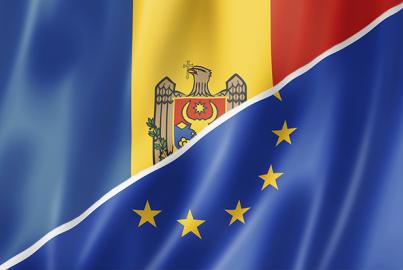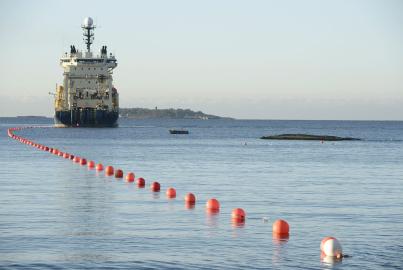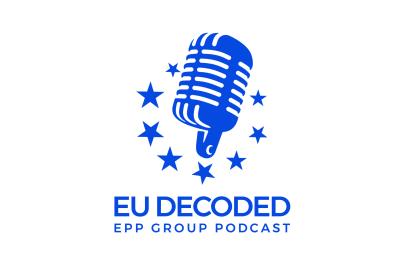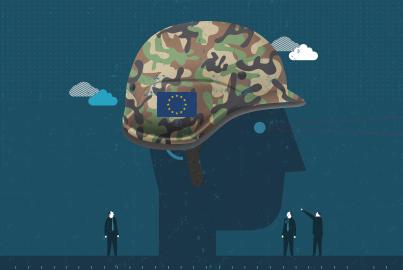List of Ongoing EU Legislation to be Reviewed in Light of the War in Ukraine

European Parliament level
- Standing debate in plenary (In March I – Refugees/In March II - Food security: in light of the Russian invasion of Ukraine).
- War in Ukraine: protection of children and young people fleeing violence (April Plenary).
- Russia stress test for all ongoing legislation, which is listed below, to adjust in light of the war: exclude Russian participation, strengthen independence from Russia, increase the EU’s autonomy or strengthen the relationship with Ukraine/Eastern Neighbourhood.
European Commission level
- Russia stress-test for all existing legislation, which is not listed below, to adjust in light of the war: exclude Russian participation, strengthen independence from Russia, increase the EU’s autonomy or strengthen the relationship with Ukraine/Eastern Neighbourhood.
Demands to be addressed to the European Commission under an urgent procedure (like what was done for Covid and Brexit) and/or the effective implementation of measures already taken
- Consider declaring Insurance Certificates invalid to block Russian private lorry drivers from coming into the EU.
- Strengthen EU Disinformation capabilities, including by upgrading EUEastStratCom; better cooperation of relevant EU bodies.
- The EU as a whole should become a secure (cyber) space: reinforce ENISA mandate and increase funding, accelerate the operational capabilities of the European Cybersecurity Competence Network and Centre and boost the European Cloud initiative to develop a European federated Cloud building on the experience of GAIA X.
- Support EU hotels hosting Ukrainian refugees.
- “Freedom Road”/“Democracy Road”: Expand Global Gateway initiative and coordinating international investments.
- Temporary Protection Directive 2001/55
Ensure a proper and effective implementation of the Directive to protect a group of persons (instead of the usual individual assessment) and mainly support local and regional authorities to provide refugees with accommodation, subsistence assistance, healthcare, including an offer of psychological help, access to labour market, making sure that children have access to Member States´ education systems and good nutrition, taking into account the women's needs (including through provision of sanitary products and ensuring safe and clean hygiene facilities). The protection of 1 year can be extended twice for a period of 6 months.
- Budget for a complete vaccination campaign, paediatric and non-paediatric (anti-diphtheria, tetanus, pertussis, polio, measles, mumps, rubella), within the refugees host countries.
- Create a special EU medical fund in order to ensure medical care for Ukrainian refugees.
- Vigilance of traffickers of Ukrainian refugees, in particular women and children, being trafficked as they flee conflict, must be incorporated into the EU’s humanitarian response.
- Share the responsibility of welcoming refugees among more MS: The Member States in the frontline (PL, RO, HU, SK) and Moldova are experiencing massive arrivals of refugees, essentially women and children. To ensure that the existing mechanisms (ex. civil protection mechanism) are used to share the efforts of welcoming the refugees; to request the EC to propose a relocation mechanism based on TFEU Article 78(3).
- In addition to financial support to bordering countries for welcoming refugees, it seems that a lot of refugees go straight to other EU countries. For the EU countries where there is a significant number of refugees, immediate financial support should start (ASAP).
- Ukrainian refugees to be beneficiaries of all current EU projects promoting social inclusion and combating poverty.
- Interpol disconnection: a letter was sent to Interpol (Chair and SG) asking to disconnect Russian authorities from the Interpol information system. Need to ensure its proper implementation. Erasmus+ and Creative Europe: broaden the financial envelope and access to the programmes in EU countries for Ukrainian citizens (students, artists, creators) and suspend the Erasmus+ exchanges with Russia.
- Russian media propaganda: ensure the proper implementation of a broader set of bans within the EU.
- Need for a holistic EU action plan to ensure food security in the EU and third-countries (Northern Africa) that will be severely impacted by the current crisis.
- Agricultural policy: before taking significant measures, a good estimate of the impact of lower harvest in Ukraine should be done to avoid wrong policies (it seems that the export market, e.g. for wheat, is of a very large size).
- Agricultural production in Europe, including fisheries, aquaculture and the whole value chain (processing, retail, etc.) should be supported; temporarily allow the use of plant protection products on Ecological Focus Areas to increase the production of protein crops.
- Use all available instruments of the CAP and the CFP to stabilise the markets.
- Specifically fisheries and aquaculture emergency measures should include: compensations for operators for their additional costs, support for the temporary cessation of fishing activities and support for Producer Organisations and the whole seafood value chain for the temporary storage of fishery and aquaculture products through the EMFAF; increase of the year-to-year quota flexibility from 10% to 25%; increase of the state aid limit to up to €500,000 per vessel under the de minimis framework; inclusion of fisheries and aquaculture in the "Temporary Crisis Framework for State Aid measures".
- Postpone any new legislative initiative under the Farm to Fork and Biodiversity Strategies, particularly those that have a negative impact on the internal food production capacity, until the impact of the crisis is fully known.
- Insist on the proper functioning of the internal market in agricultural products; tough action against Member States that impose any form of export bans.
- If the crisis persists: temporary suspension of set-aside obligations in the new CAP (as of 2023).
- Use all available means in the current MFF (flexibility provisions and special instruments) to address the urgent needs (e.g. humanitarian aid, refugees).
- Reuse the 2014-20 decommitments of cohesion policy: these appropriations should re-enter the EU budget in order to allow for an adequate, financial response to the crisis.
- Conduct an in-depth analysis of the functioning of the current MFF, so as to determine the need and timing of an MFF revision, which will take account of the long-term impact of the crisis on existing EU policies as well as the shift to new political priorities.
- Strengthen the European Defence Fund and the Permanent Structured Cooperation.
- A clear and targeted revision of the Financial Regulation: a mandatory single interoperable database, with relevant information on direct and ultimate beneficiaries of EU funds, including but not limited to the mandatory risk-scoring tool – ARACHNE – in order to have a clear overview of the recipients of the EU funding and prevent oligarch structures from benefiting from EU funds.
- EU funds: no EU money should go not only to Russian (and Belorussian) oligarchs, but any firms affiliated with Russian state should be included too, also recommend to Member States their exclusion from public tenders.
- Creation of an EU Trust Fund for Ukraine with the full involvement of Parliament (Donors’ conference).
- Effective implementation of the SWIFT sanction and extension of sanctions to more banks from Russia and Belarus.
- Acceleration of the ongoing efforts to enhance military mobility. Implementation of the infrastructural investments must be intensified firstly focusing on the EU Member States bordering Ukraine, Belarus and Russia:
- Adequate financial support for military mobility must be provided - funding through the Connecting Europe Facility must be increased;
- We must make possible to start implementation of selected projects immediately, by enabling eligibility for reimbursements of expenditures so that funding can be allocated retrospectively;
- Currently the MS/EU contribution in co-funding of projects is 50%/50%; we propose to increase the proportion of the EU co-funding part (at least for projects from predefined list – for the Eastern flank of EU countries);
- Prioritise investments removing bottlenecks and missing links;
- Fast Track for ongoing and planned projects – adopting by DG Move with CINEAsimplified administrative procedures eligible for these types of investments;
- Decisions on specific actions should take into consideration NATO and EU military planning, especially urgent international efforts to boost defence and deterrence across all domains (land, sea and air) along the Eastern borders of NATO and EU.
- Improve the selection of structuring projects aiming at quickly fill European technological and capacity gaps, as well as swift implementation of the incentives to develop cooperative policies in military acquisition (VTA exemptions as proposed by the Commission in February). And more generally the need to make already existing military structures within EU institutions more robust.
Demands to be addressed to the Council and/or the Member States
- All movable or immovable assets of the Russian state, Russian local authorities, Russian state-owned companies or Russian oligarchs and their families have to be frozen and we should look into the legal possibility of confiscating them.
- Improve information on assets owned by oligarchs, affiliates, firms affiliated with Russia and improve anti-money laundering (AML) legislation; reflect this experience in the ongoing review of the AML legislation.
- Prohibition for trust companies to provide services to Russian or Belarussian clients above a yearly threshold of EUR 100,000.
- Forbid the operation of LUKOIL gas stations and refineries in the EU and other Russian owned or controlled companies in the energy sector (Rosneft, Surgutneftegas and Gazprom).
- Filling gas storages - must start now, make a plan how to get gas to Member States that have no LNG terminals or oil terminals – the second is very important, probably the Commission should do it.
- Make sure gas storage capacities are owned by EU companies only and purchase gas storage capacities owned by Russian companies.
- Support EU based and owned companies and transport operators with links into the Russian market for the reorientation of their operations.
- Prohibit the export to Russia and Belarus of all possible dual-use goods, including truck parts that could be used in a military truck.
- Refuse access to all EU ports for ships whose last or next port call is in Russia, except when necessary justified humanitarian reasons require the call - or if the cargo has been purchased before the invasion.
- Seize all yachts and luxury ships of Putin and Russian oligarchs in EU ports.
- Golden passports: ensure that the EP official position is implemented (March 2022 Plenary) : calling upon Member States to immediately suspend the current Russian applicants to golden passport schemes and reassess the passport granted + abolition of Citizenship by Investment (CBI) schemes in the future + more strict rules for granting Residence by Investment (RBI) schemes.
- Sport events: call the international bodies to limit or axe the participation of Russia athletes.
- Work out a strategy towards Chinese firms that are helping Russia by providing support to the war and overcoming the sanctions.
Demands related to ongoing files under the ordinary legislative procedure relevant both for the EP and Council.
- Ensure sanctions cannot be circumvented through crypto assets (Markets in Crypto Assets/Anti-Money-Laundering legislation).
- We quickly need alternatives to support the energy transition and ensure energy security of supply and set maximum limit for gas/oil imports from Russia (total EU) as well as from single supplier (latter); set target immediately to force MS to act.
- Ensure better gas market integration and diversifying gas sources via pipeline and LNG from inside - and outside - the EU (Black Sea, Cyprus, Israel, Algeria, Egypt, Libya, etc.) with a targeted import strategy; and endeavour to facilitate new long-term contracts with existing and new suppliers (fossil and renewable) (Gas Package/RED).
- Ensure better gas market integration and diversifying gas sources from in and outside the EU with targeted import strategy (fossil and renewable) (Gas Package/RED).
- Mandatory gas storage of 60%-90% of capacity, based on national risk assessments, by 1/10 each year (EC RePowerEU) and consider increase of MS reserves for oil, petrol, diesel.
- Significantly increase interconnections and crucial energy infrastructure (gas and electricity), LNG terminals.
- Urgent targeted measures to prevent surge of energy price.
- Energy efficiency: improve instruments to achieve more energy efficiency, consider emergency measures to curb energy demand.
- Lower VAT and energy taxes, and abolish special levies on energy. (Council unanimity required).
- Consider postponing coal and nuclear phase-out (for those plants that do not rely on Russian technology).
- Strengthen tools against disinformation and fake news (Digital Services Act).
- International Public Procurement (IPI): react swiftly to countries limiting access for EU companies, restrict public procurement in the EU in the event of gross violations of international rules. Strengthen digital sovereignty and competitiveness (EU Industry Strategy, State Aid guidelines, EU Chips Act, AI legislation, faster implementation of Critical Entities/NIS II directive).
- Increase short-term budget of Defence and Space programme. (Budgetary procedure/MFF)
- Home Affairs Funds 2014-2020: urgent procedure to extend the implementation period of the funding (Urgent procedure foreseen in March II). (Budgetary procedure/MFF).
- Adopt without any delay the CARE proposal (“Cohesion’s Action for Refugees in Europe” - Urgent procedure foreseen in March II plenary). Call for further extension of these measures, should the needs exceed the current proposal.
- Improve information on assets owned by oligarchs, affiliates, firms affiliated with the Russian state in the ongoing review of AML legislation, which need to be strengthened.
Proposed procedure within the EPP Group
A Standing Monitoring Group should be set up in order to follow up, update this ongoing process and to report back to the Presidency/Presidency and HoND and the Group. The structure of this Monitoring Group should be decided by the Presidency.
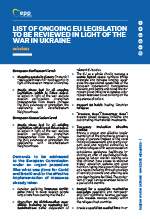
List of Ongoing EU Legislation to be Reviewed in Light of the War in Ukraine
1 available translation
EnglishOther related content
Foreign Affairs
Security and Defence
Neighbourhood - Eastern Partnership

podcast
6 / 54
